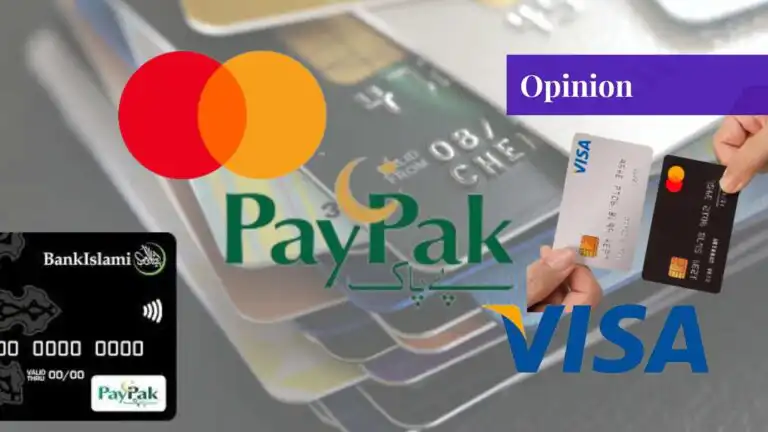Working as the product manager for payments at a leading technology start-up in Saudi Arabia, one of my major KPIs at work was to increase the share of non-cash/digital payments on our platform. This goal was in line with startup and user experience trends worldwide but also with the Saudi government’s Vision 2030, where they want to increase the share of digital transactions in the KSA (Kingdom of Saudi Arabia) to more than 70% by 2030.
The arguments in favor of the digitalization of payments are immense, well-researched, and often economic. It leads to better documentation of money flows, more efficiency (no cash handling, faster settlements, and more security), and helps build credit histories. But there are also strategic questions around this that are implied but seldom raised and even less often answered. But back to my task of increasing digital payments for our company.
Saudi Arabia’s Mada
As I researched and dove deeper into the problem, I first learned about “Mada” when several customers complained about Mada cards not working on our application. But what in the world was Mada? Was it some rusty Saudi bank whose cards were problematic? The only two payment networks I had in mind and on the cards in my wallet were either Visa or MasterCard. Delving deeper into this issue, I was shocked to learn that over 92% of all cards in Saudi Arabia were Mada – powered by Saudi Arabia’s very own home-grown payments network.
This is where I had a faint recollection of “PayPak,” Pakistan’s domestic payments network. I remembered having the choice a year back to issue either a “PayPak” or “Visa” debit card for my Easypaisa mobile wallet account. I chose Visa, but why are nearly all Saudi customers choosing Mada over these international payment networks for their cards when some Pakistanis don’t even know about PayPak?
The Issue with PayPak
PayPak suffers from an “image” problem in Pakistan. It has traditionally not been the payment network of choice for cardholders. It is also fairly new, launched less than 10 years ago in 2016. Bank advertisements do not feature PayPak nor have these been the cards issued by default when you make a bank account or get a debit/credit card issued. Banks have vested interests here because they can charge more in terms of annual and issuance fees for international payment network cards.
There has been both an impression and a reality that PayPak cards are not widely accepted at home and internationally (part of why I chose a Visa card even though it was slightly more expensive than the PayPak card on offer).
How Saudi Arabia Handled These Problems
Mada cards have lower payment processing fees than Visa and MasterCard – making them immediately more attractive for merchants/businesses like my company and all POS (point of sale) terminals. Mada cards are accepted all across Saudi Arabia. For users seeking cards that can perform international transactions, Mada cards that are co-branded/co-badged with Visa are also available.
All Saudi banks are required by SAMA (the Saudi Central Bank) to issue cards that are compatible with the Mada payments network. There may be an element of national pride associated with getting a Mada card versus other payment networks.
To be fair to the State Bank of Pakistan and PayPak’s parent body, 1Link, there have been several strides in the payments and financial technologies space in Pakistan in recent years. The introduction and constant updates to RAAST (our domestic interbank transfer system) and a “rebranding” effort for PayPak to make it more attractive, especially to young people, are noteworthy.
In 2023, an MoU was signed between 1Link and MasterCard to enable PayPak and MasterCard co-badging which will enable PayPak cardholders to conduct international transactions with their cards soon. However, we are still waiting for the first co-badged cards to be rolled out in the Pakistani market. Finally, the State Bank has also doubled down on its directives to local banks to use PayPak cards for issuance by default and only issue Visa/MasterCards if the customer expressly asks for them.
But despite all of this with nearly 50 million debit and credit cards in circulation in Pakistan, PayPak cards account for just about 10 million cards (~20-25% of all cards issued in Pakistan). The case of Saudi Arabia, where Mada cards’ share in the Saudi Market jumped from 45% in 2020 to 92% in 2022, shows us that increasing the share of PayPak is not an impossible feat. But what is the strategic imperative of increasing PayPak penetration in Pakistan?
Russia’s MIR
I got the chance to visit Russia in early March this year for the World Youth Festival. It was nice to see that digital penetration is extremely high in Russia. You can purchase everything from museum tickets and bus tickets to corn on the cob at your nearest roadside stall by simply tapping your bank card on a POS terminal. But how is such an advanced digital economy still thriving despite crippling Western sanctions?
Remember the US-based Visa and MasterCard? They suspended all operations in Russia two years ago at the start of the current Russia=Ukraine conflict in March 2022. Since then Russia’s domestic payments network, MIR, has grown from just 25% of all cards issued in Russia (similar to PayPak today) to 100% today, supporting all debit/credit cards in use because cards issued to Russians on foreign payment networks like Visa and MasterCard simply don’t work anymore.
Even though Russians can’t pay internationally with their MIR cards, life at home runs undisturbed despite a war raging just a few hundred kilometers away from Moscow. Should Pakistan ever have to bear a crisis, the brunt of international financial sanctions, or if we decide one day to keep control of our financial transactions data in our own hands, PayPak will be our best bet. The rise of RuPay in India and Mada in Saudi Arabia is not an exercise in vain.
If you want to submit your articles and/or research papers, please check the Submissions page.
The views and opinions expressed in this article/paper are the author’s own and do not necessarily reflect the editorial position of Paradigm Shift.
Sheharyar Malik is a product manager for payments at a leading Middle Eastern startup, an independent researcher, and a keen watcher of international and strategic affairs. He has been involved in several youth-led public diplomacy initiatives and graduated from the Lahore University of Management Sciences (LUMS) with a degree in management sciences. He can be reached at https://www.linkedin.com/in/sheharyarmalik/.






